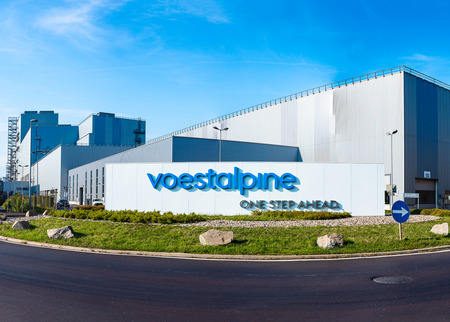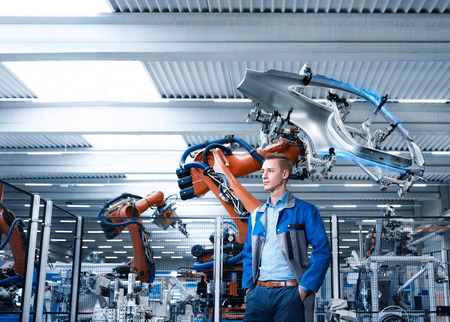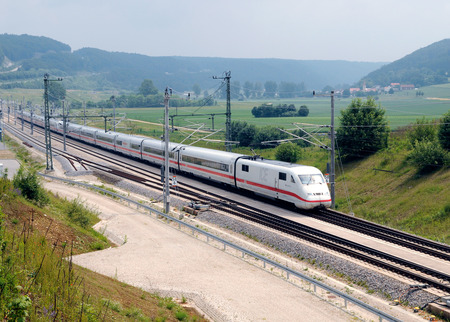- Revenue fell by 16.8% year over year, from EUR 9.6 billion to EUR 8 billion
- At EUR 683 million, operating result (EBITDA) is substantially positive (Q3 2019/20: EUR 837 million)
- At EUR –134 million, profit from operations (EBIT) is negative (Q3 2019/20: EUR –82 million) due to impairment losses
- At EUR –159 million (Q3 2019/20: EUR –160 million), profit after tax affected by impairment losses as well yet stable
- Substantial improvement in the gearing ratio, from 80% the previous year to currently 58.4%
- Marked reduction in net financial debt by 30.7% year over year
- 47,871 employees (FTE) as of 12/31/2020 (–3.9%)
- Automotive, construction, and consumer goods industry almost back to pre-COVID-19 level
- Railway infrastructure remains stable at a positive level, boom in orders for storage systems
In the first nine months of the business year 2020/21, the performance of the voestalpine Group was strongly shaped by the COVID-19 pandemic. While the business year’s first quarter was characterized by the massive meltdown in demand in almost all customer segments and regions, the second quarter saw a considerable rebound in major sectors. Upward trends in key business segments continued in the third business quarter despite renewed lockdowns. The automotive industry, in particular, gradually recovered following the production shutdowns during the Northern spring, once again returning to order levels during the Northern fall that equated roughly to those prior to the outbreak of the COVID-19 pandemic. The construction, consumer goods, and white goods industries also managed to rapidly return to pre-COVID-19 order levels (the last two did well even during the difficult first business quarter). Conditions in the aerospace industry as well as in the oil and natural gas sector remained difficult, however. The railway infrastructure technology segment developed along a stable, positive trajectory during the entire reporting period. The high-bay warehouses customer segment also posted highly satisfactory performance. Thanks to the growth in online commerce, this unit posted record order levels in Europe and North America (key markets both) during the Northern fall.

Our current performance in key customer segments has boosted our outlook. Our efforts with respect to cost savings and efficiency gains are having an effect. We are well positioned and even succeeded in stabilizing yet further in this difficult environment, substantially increasing the free cash flow, and decreasing our debt by one third. At the same time, we invested EUR 450 million in our future. Positive market signals notwithstanding, it remains to be seen how the future course of the COVID-19 pandemic will affect the global economy.
Development of revenue and earnings
The voestalpine Group’s revenue as of the third quarter of the business year 2020/21 fell by 16.8% year over year, from EUR 9.6 billion to EUR 8 billion; given the continual improvement in order levels over the reporting period, revenue for the third business quarter is but slightly lower year over year. At EUR 683 million, EBITDA for the first three quarters of the business year 2020/21 is 18.4% less than the EBITDA of EUR 837 million for the first three quarters of the business year 2019/20. Similarly to revenue, EBITDA also improved continually during the reporting period. EBIT dropped from EUR –82 million to EUR –134 million; the numbers for both the previous year and the reporting period contain significant non-recurring effects. These non-recurring effects in the amount of about EUR 200 million adversely affected EBIT for the current business year’s first three quarters (Q1–Q3 2019/20: EUR 345 million). At EUR –159 million, the profit after tax was also affected by impairment losses but remains largely stable year over year (Q1–Q3 2019/20: EUR –160.0 million).
The gearing ratio (net financial debt as a percentage of equity) improved substantially: from 80% as of December 31, 2019, to 58.4% as of December 31, 2020. While equity fell by 5% to EUR 5.4 billion as of December 31, 2020 (down from EUR 5.7 billion year over year), net financial debt dropped by 30.7%, from EUR 4.6 billion in the previous year to EUR 3.2 billion in the reporting period thanks to cuts in investment costs and reductions in working capital.
Year over year, the number of employees (FTE) in the voestalpine Group fell by 3.9% to 47,871. As of December 31, 2020, about 1,100 employees in Austria were still registered for short time work—down from 10,300 at the beginning of the COVID-19 crisis. About 700 employees in Germany and an additional 470 internationally (especially in South Africa, France, and Great Britain) were still registered for short time work or similar programs at the end of 2020.
Outlook
The number of COVID-19 infections rose dramatically yet again in most of the world during the third quarter of the business year 2020/21. Individual states in Europe reacted yet again with lockdowns; even in the United States restrictions were imposed on public life. Given the circumstances, so far none of these measures have had material adverse effects on the economic recovery of those markets that are relevant to the voestalpine Group. However, the uncertainties about economic developments going forward have risen sharply. It is completely unclear to date how the expansion of limitations on commerce will affect the consumption of European products. The risk of downtimes in production or of interruptions in essential supply chains owing to the pandemic cannot be predicted at this time.
In no small part, this is why voestalpine’s management continues to focus on cost management and earnings stabilization. Its efforts with respect to working capital management and curtailment of investments in order to buttress both cash flow and the Group’s asset and capital structure will continue as well.
Several positive developments occurred after the end of the reporting period above and beyond central banks’ clearly supportive monetary policies in the world’s major economic regions.
- First and foremost, the medicines regulatory authorities (MRAs) of many countries have licensed vaccines against the COVID-19 virus, and campaigns to immunize the public have been launched.
- The U.S. Administration announced an economic stimulus package of historic proportions.
With the exception of the oil and natural gas sector as well as the aerospace industry, we can say from today’s vantage point that the economic rebound of the voestalpine Group’s main markets is more probable than not. Assuming that there will be no new major restrictions on economic activity and/or state-ordered measures owing to the COVID-19 pandemic, the Management Board currently forecasts EBITDA of about EUR 1 billion for the entire business year 2020/21 and thus an amount at the upper end of the previously communicated range.
The voestalpine Group
In its business segments, voestalpine is a globally leading steel and technology group with a unique combination of materials and processing expertise. voestalpine, which operates globally, has around 500 Group companies and locations in more than 50 countries on all five continents. It has been listed on the Vienna Stock Exchange since 1995. With its top-quality products and system solutions, it is a leading partner to the automotive and consumer goods industries as well as the aerospace and oil & gas industries, and is also the world market leader in railway systems, tool steel, and special sections. voestalpine is fully committed to the global climate goals and is working intensively to develop technologies which will allow it to decarbonize and reduce its CO2 emissions over the long term. In the business year 2019/20, the Group generated revenue of EUR 12.7 billion, with an operating result (EBITDA) of EUR 1.2 billion; it had about 49,000 employees worldwide.


voestalpine.jpg)

